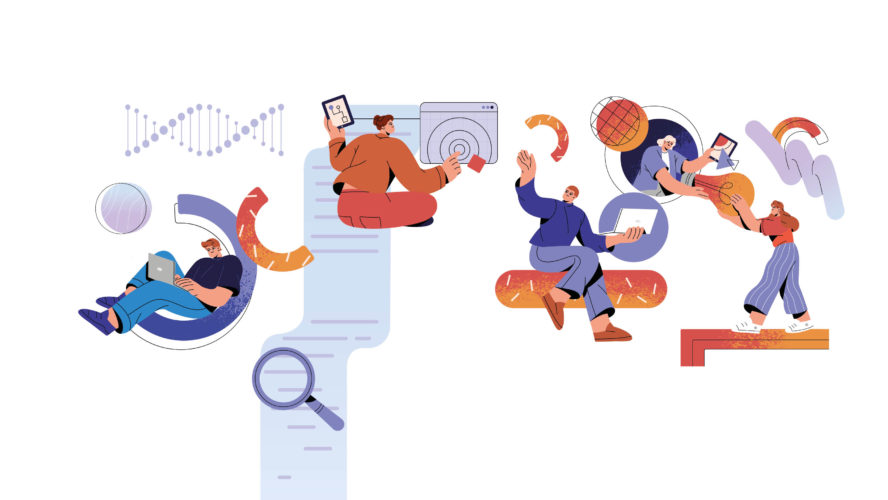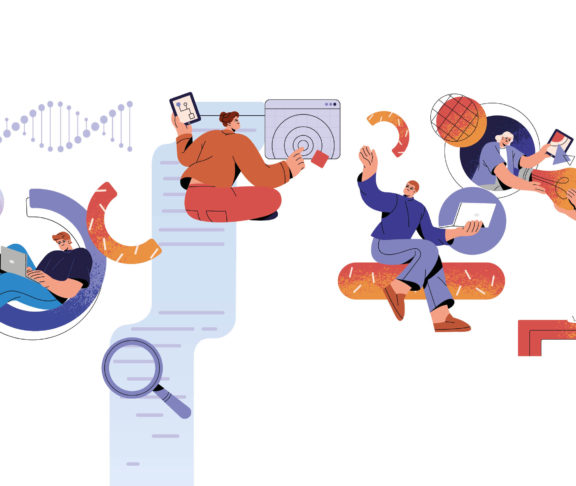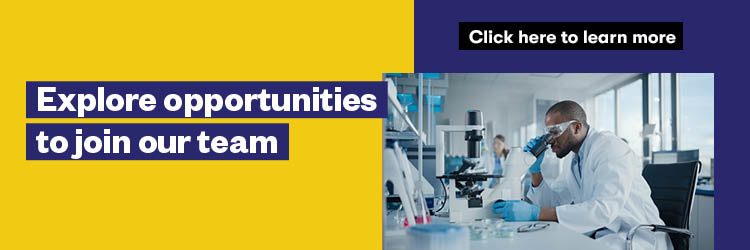
Global healthcare companies are looking for passionate individuals from all backgrounds who bring a range of transferable skills and are determined to make their shared goal of improving healthcare around the world a reality.
Viatris was formed to bridge the traditional divide between generics and brands, combining the best of both, to holistically address healthcare needs globally. The company sees access to medications as fundamental to its mission of empowering people worldwide to live healthier at every stage of life.
In Ireland, 1,600 colleagues are employed across five sites in Dublin, Cork and Galway. With a combined legacy of approximately 120 years, the company is proud of its ability to deliver from end-to-end and across 13 therapeutic areas.
“There are two, big misconceptions that people have about the pharmaceutical industry,” says Cherisse Frawley, Interim Medical Lead. “The first is that everyone within it wears a white coat and works in a lab. The second is that you shouldn’t even think about applying unless you have a science degree or a PhD.” However — on both counts — this couldn’t be further from the truth.
“The pharmaceutical industry requires a broad range of skillsets because it offers a vast array of roles,” explains Frawley. “Yes, it needs people who have scientific backgrounds. I trained as a pharmacist, for example, but it also needs finance experts, supply chain experts, sales professionals, HR personnel, quality and compliance specialists … the list goes on. The fact is that people from many different backgrounds have valuable transferable skills that the pharmaceutical industry seeks; so, while hiring decisions are often based on experience, potential is the most important attribute to have. My advice is: if you have an openness and willingness to explore the avenues it offers, then go for it!”
Being adaptable, focused and seizing opportunity
James O’Connor, Sales Manager, agrees with Frawley’s assessment of transferable skills. “One of my colleagues used to be an architect and another was a history teacher,” he says. “I started my career as a science teacher, and now, I’m fortunate to be part of a global organisation that is one of the largest suppliers of medicines to the HSE. The point is, it doesn’t matter where you start. You can be successful if you are adaptable, focused, motivated and put your hand up to say: ‘I can do that!’ when an opportunity arises.
O’Connor has almost 40 years of industry experience and admits he’s seen various changes over that time. “For one thing, technology has improved greatly since I first started,” he says. “There’s also more focus on Employee Resource Groups and Corporate Responsibility — and it’s faster-paced. However, in another way, the industry hasn’t changed at all because, ultimately, it’s about providing more access to medicines for patients. It’s what we’ve always been here to do, and what we’ve always done.”
Learning new skills and broadening ways of thinking
One of Frawley’s earliest career experiences was working in a community pharmacy. While she loved the job, she says that moving roles dramatically expanded her horizons. “It’s so rewarding to be bringing innovative solutions that contribute to advancing patient care and wellbeing both in Ireland and abroad,” she admits.
“On a personal basis, I’ve loved having the opportunity to grow and develop skills such as project planning, strategic thinking and relationship building across many different stakeholder types. It’s also been wonderful to work with dynamic teams that feature people from diverse backgrounds. It’s helped me gain different perspectives and broaden my way of thinking.”
Diversity and inclusion have always been important at Viatris, stresses Melissa Fisher, Country Manager Ireland. Making every employee feel valued is the right and ethical thing to do. “As a person from a diverse background, I have my own journey in the forefront of my mind,” says Fisher.
“A diverse and inclusive environment helps colleagues feel psychologically safe because if I encounter someone I relate to, I can identify with them, which gives me a sense of wellbeing. A focus on diversity and inclusion helps colleagues feel truly valued and that they can be their full selves, all the time.” It’s why the company has created colleague-led Employee Resource Groups — including VIVID, an LGBTQ+ Resource Group, and EmpoWer, its Women’s Resource Group.
Creating a diverse and inclusive workplace
Melissa Fisher
helps us engage with, understand and
appreciate our customers more effectively.
Spotting talent and helping colleagues develop
“Creating a diverse and inclusive workplace helps us engage with, understand and appreciate our customers more effectively,” Fisher says. “After all, they will also be from diverse backgrounds. The more diverse we are, the wider talent we attract. So, we celebrate difference here at Viatris because we know that diversity is a strength, not a weakness.”
Jane Mogerley, Head of Regulatory Affairs, echoes this sentiment. “When you are exposed to various cultures, environments and perspectives, it helps build your skills, values and behaviours,” she says. “We support many charities and community groups each year, which are chosen by employees, ensuring they have the opportunity to understand the challenges of the communities they serve while also embracing what makes individuals unique and realising their own potential. There are so many different departments and roles, too, that give colleagues a range of experiences to help drive their careers forward.”
Mogerley has personally experienced this. “I’ve felt nurtured from the day I started,” she says. “Viatris is a company that’s transparent about the opportunities it offers and has developed a culture where people support and invest time in each other.”
Now part of the senior leadership, Mogerley is passionate about spotting talent and helping colleagues develop, both personally and professionally. “That involves creating an environment where all team members feel comfortable and included and where everyone is approachable,” she explains. “It’s also about fairness – sharing opportunities equally, regardless of tenure. Then it’s about encouragement, support and giving ownership — and, when colleagues have achieved their goals, recognising their work with a thank you.”
Mogerley is hugely proud of the teams she has developed, especially when she sees colleagues moving into challenging new roles and excelling at what they do. “Don’t get me wrong,” she says. “It can feel like a loss when a great colleague moves onwards and upwards. But it’s also important to celebrate their success and recognise that it creates a space for other talented people to shine.”
Developing a positive culture and growing teams
Andrea Moore, Quality Director knows all about developing a positive culture and growing teams. “Culture change was very important for us as Viatris was getting started because it provided the foundation for how the company was going to work and how successful it was going to be,” says Moore. “We wanted to create an environment where colleagues in our five Irish sites would have positive mindsets and trust that the company was going to be exciting and successful, building on its 120-year legacy in Ireland. We wanted to show them that Viatris would have strong values and be determined to fulfil its mission to provide patients with safe, sustainable and effective generic and branded medicines.”
This positivity starts at leadership level. “To build trust with their teams, leaders have to set an example,” says Moore. “We created expectations: ‘Own It’ ‘Be Real’ ‘Stay Agile’ and ‘Take Pride’. Leaders inspire others by implementing those values in their own work, listening to colleagues, finding out about their ambitions and needs and giving them projects that feed their passions.”
Moore can’t imagine working in any other sector. “I find the pharma industry so exciting because there’s always something new to learn and progression is always possible,” she says. “But, the main reason? We’re here to deliver for patients. That’s the most important thing we do.”



